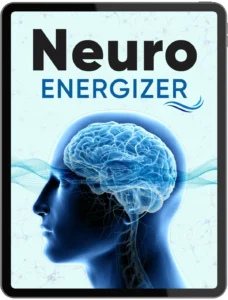Staying focused while studying is one of the biggest challenges students face today. Between constant notifications, social media distractions, stress, and even a wandering mind, concentration often slips away just when it’s needed most. The good news is that focus is not simply a matter of willpower—it’s a skill that can be trained and improved with the right strategies. In this article, we’ll explore 10 proven techniques that will help you sharpen your concentration, retain more information, and study more effectively.
Why Concentration Matters in Studying
Concentration is the mental ability to direct attention toward a single task without being distracted. When you concentrate deeply, your brain processes information more efficiently, making learning faster and memory retention stronger. Lack of focus, on the other hand, results in wasted time, poor comprehension, and frustration. By improving your concentration, you not only study better but also reduce stress and boost academic performance.
1. Create a Distraction-Free Environment
Your environment plays a critical role in how well you can concentrate. A cluttered desk, noisy surroundings, or constant interruptions can drain your focus before you even start. To improve concentration:
- Study in a quiet, clean, and well-lit space.
- Turn off notifications on your phone or keep it in another room.
- Use noise-canceling headphones or play low-volume instrumental music if needed.
A focused study space signals to your brain that it’s time to work, making it easier to enter a state of deep concentration.
2. Use the Pomodoro Technique
The Pomodoro Technique is a time management method that breaks study sessions into manageable chunks, usually 25 minutes of work followed by a 5-minute break. After four sessions, you take a longer 15–30 minute break.
This technique prevents burnout, keeps your mind fresh, and helps you build a rhythm of consistent focus. Knowing that a break is coming encourages your brain to stay on task during the focused interval.
3. Set Clear Study Goals
Vague goals like “study biology” often lead to procrastination and mental drift. Instead, set specific, achievable study goals such as “review chapter 3 and complete 10 practice questions.” Clear goals give you a roadmap and help your brain stay engaged with the task at hand.
You can use a to-do list or digital productivity apps to keep track of your progress and reward yourself when goals are achieved.
4. Practice Active Learning
Passive reading or skimming notes can make your mind wander easily. To improve concentration, engage in active learning methods:
- Summarize information in your own words.
- Teach concepts to someone else.
- Create flashcards or mind maps.
- Test yourself with practice questions.
By actively interacting with the material, your brain stays alert, making it less likely to lose focus.
5. Manage Stress and Anxiety
Stress and anxiety are among the biggest enemies of concentration. When your mind is worried or overwhelmed, it becomes difficult to focus on studying. To combat this:
- Practice deep breathing or meditation before study sessions.
- Use positive affirmations to reduce negative thoughts.
- Break tasks into smaller, manageable pieces to avoid feeling overwhelmed.
A calm mind is a focused mind, and managing stress will help you concentrate more effectively.
6. Get Enough Sleep
Sleep is not a luxury—it’s a necessity for concentration and memory. Research shows that students who get 7–9 hours of sleep each night perform better academically. Sleep deprivation reduces attention span, increases mental fatigue, and lowers motivation.
Establish a regular sleep routine, avoid late-night screen time, and prioritize rest. Your brain consolidates information while you sleep, making your study sessions more productive.
7. Stay Hydrated and Eat Brain-Boosting Foods
Your brain needs proper fuel to stay focused. Dehydration and poor diet can cause fatigue, headaches, and brain fog. To stay mentally sharp:
- Drink enough water throughout the day.
- Eat foods rich in omega-3 fatty acids, antioxidants, and vitamins, such as nuts, fish, berries, and leafy greens.
- Avoid excessive sugar and processed snacks, which cause energy crashes.
Think of food and hydration as tools to keep your mind running at full capacity.
8. Limit Multitasking
Many students believe they are saving time by multitasking, but research shows it actually reduces efficiency and concentration. Switching between tasks overloads the brain and makes it harder to retain information.
Instead, practice “single-tasking.” Focus entirely on one subject or one assignment at a time. This trains your brain to concentrate more deeply and improves both speed and accuracy in studying.
9. Incorporate Movement and Exercise
Sitting still for long periods can make your mind sluggish. Physical activity increases blood flow to the brain, releases endorphins, and improves mental clarity. Even short breaks of stretching, walking, or light exercise can dramatically improve concentration.
Try adding quick workouts before or after study sessions, or take movement breaks every hour to re-energize your mind and body.
10. Build a Consistent Study Routine
Consistency builds focus. When you study at the same time each day, your brain adapts to the habit and learns to enter “study mode” more quickly. A structured routine eliminates the mental energy wasted on deciding when or how to study.
Choose your most productive hours of the day, whether that’s morning or evening, and stick to them. Over time, concentration becomes more natural and less forced.
Final Thoughts: Mastering Concentration Takes Practice
Improving concentration while studying doesn’t happen overnight. It requires consistent effort, self-awareness, and the willingness to try new strategies until you find what works best for you. By creating the right environment, managing your time, fueling your brain, and practicing mindfulness, you can train your mind to stay focused for longer periods.
With these 10 proven techniques, you’ll not only improve your concentration but also transform the way you learn, making every study session more effective and rewarding.

